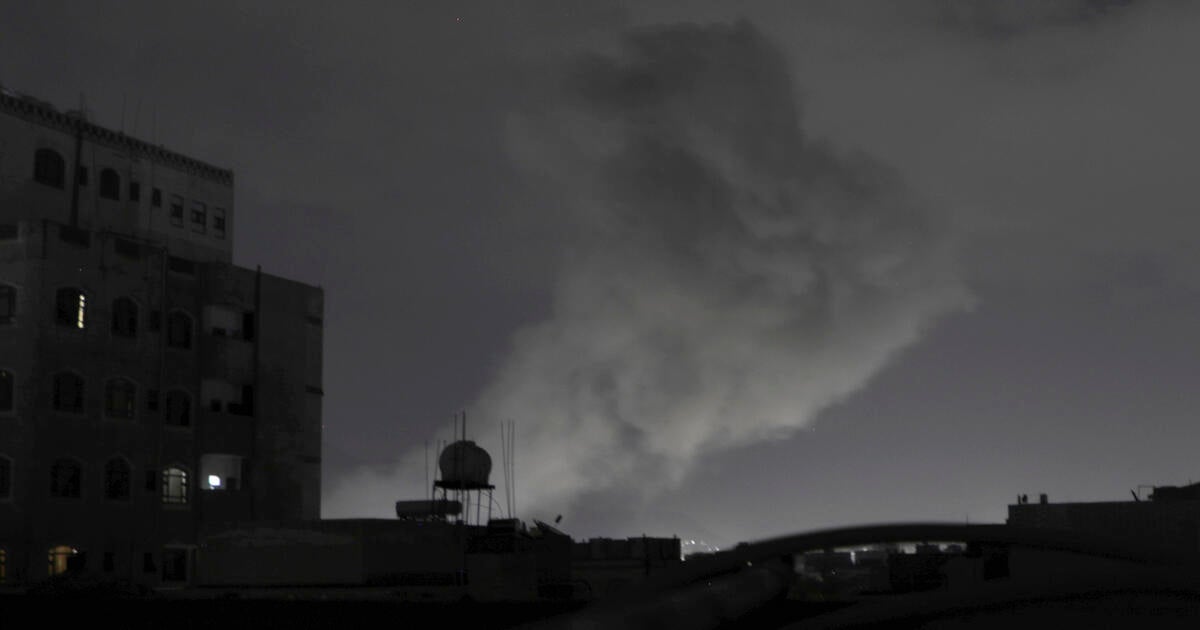The United States’ military operations took a decisive turn on Saturday, as President Trump ordered an escalation of force against the Houthi rebels based in Yemen. The President’s action came in response to the Houthi’s relentless campaign of piracy, violence, and terrorism, which has been aimed at American and international vessels, drones, and aircraft. The U.S. administration has now vowed to use “overwhelming lethal force” until the Houthi cease their maritime attacks.
In a statement released on social media, President Trump declared, “Today, I have ordered the United States Military to launch decisive and powerful Military action against the Houthi terrorists in Yemen. They have waged an unrelenting campaign of piracy, violence, and terrorism against American, and other, ships, aircraft, and drones. The Houthi attack on American vessels will not be tolerated. We will use overwhelming lethal force until we have achieved our objective.”
The President went on to underscore the economic toll imposed by the Houthi’s relentless attacks, stating that their actions have cost the U.S. and the world economy billions of dollars. Moreover, he stated that the assaults jeopardize innocent lives. The President made a firm call to the rebels, demanding that “your attacks must stop, starting today.”
The U.S. Central Command confirmed the Saturday strike, releasing a social media post that includes a video of a fighter jet taking off from an aircraft carrier. The strikes, according to an anonymous U.S. official who confirmed the operations to CBS News, are just the beginning. The Central Command is reportedly prepared to extend the military campaign against the Houthis from the air and the sea for potentially weeks, depending on the reactions from the Houthis and Iran.
The immediate aftermath of the strikes saw at least 13 people killed, and another nine were wounded, according to a report released by the Associated Press. Images circulated in the media show smoke rising from locations reportedly struck by the U.S. airstrikes in Sanaa, Yemen.
This decisive military action comes on the heels of an announcement made earlier this week by the Houthi rebels, who stated their intention to resume attacks on Israeli ships in response to Israel’s blockage of aid to Gaza. The Houthis have been operating out of Yemen, with Iran’s backing, supplying, and training for years.
Initially, following the deadly terrorist attack launched by Hamas in Israel in October 2023, the group stated that they would target only ships linked to Israel, in support of the Palestinian people. However, U.S. officials have indicated that the group has targeted ships with no connection to Israel’s war.
The U.S., Israel, and the United Kingdom have previously carried out military operations against Houthi-held areas in Yemen. Iran, a known supporter of the Houthi rebels, has close ties with Russia. In light of the recent military escalation, State Department spokesperson Tammy Bruce revealed that Secretary of State Marco Rubio held a call on Saturday with Russian Foreign Minister Sergey Lavrov.
During the call, Rubio reportedly informed Lavrov of “U.S. military deterrence operations against the Iran-backed Houthis and emphasized that continued Houthi attacks on U.S. military and commercial shipping vessels in the Red Sea will not be tolerated.”
In a move that signifies the severity of the situation, President Trump, days after taking office in January, designated the Houthis as a Foreign Terrorist Organization. This action reversed the decision made by former President Joe Biden, who had removed the Houthis as a Foreign Terrorist Organization in 2021 but then re-designated them as a Specially Designated Global Terrorist in early 2024.
As the situation unfolds, the international community will be closely watching the developments in the region. The recent military operations against the Houthi rebels underscore the seriousness with which the U.S. is addressing the threats emanating from Yemen. With the potential for the campaign to extend over weeks, the region is braced for a period of heightened tension and conflict.
The report was contributed by Margaret Brennan, Anne Bryson, and Eleanor Watson.









